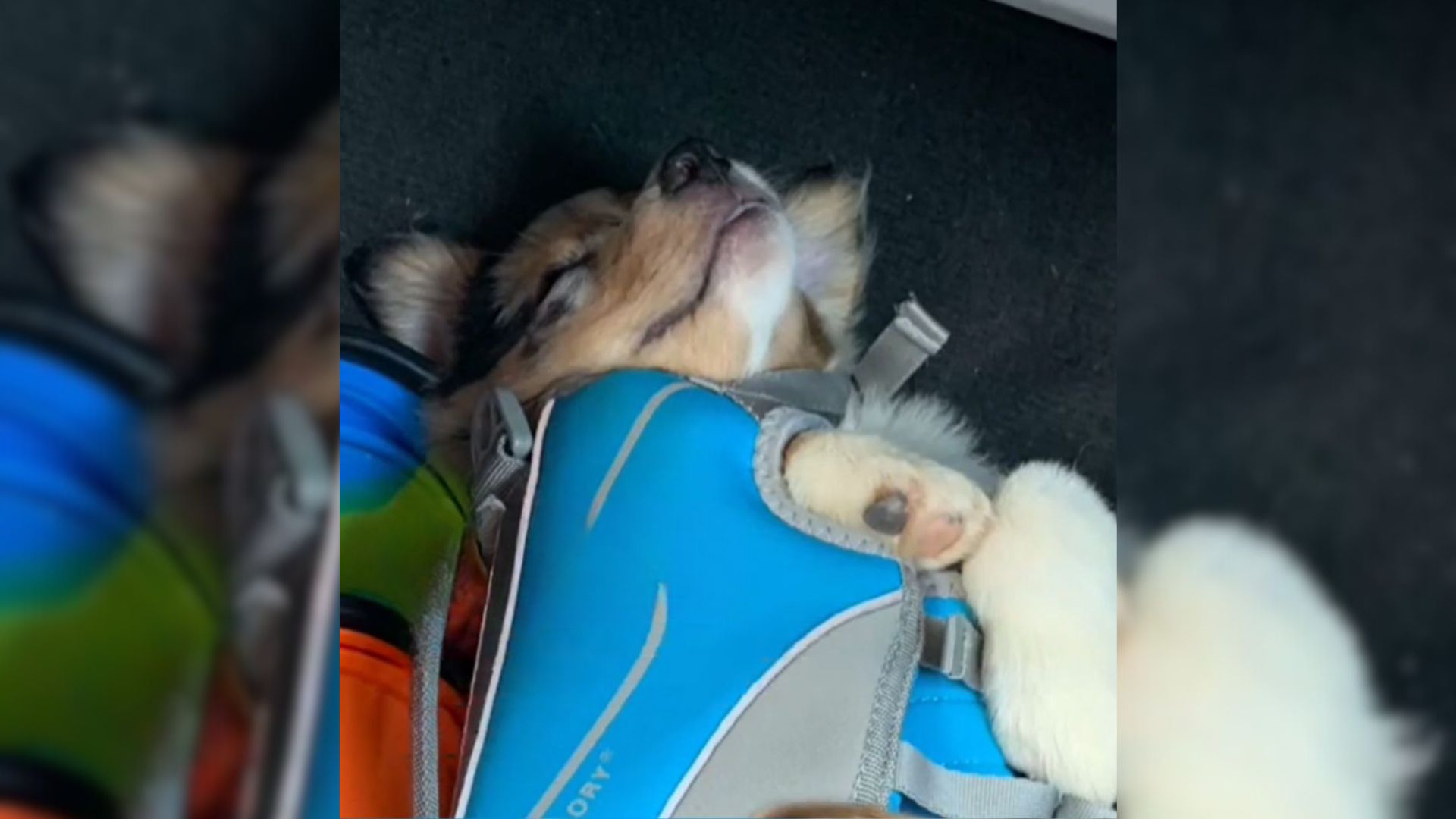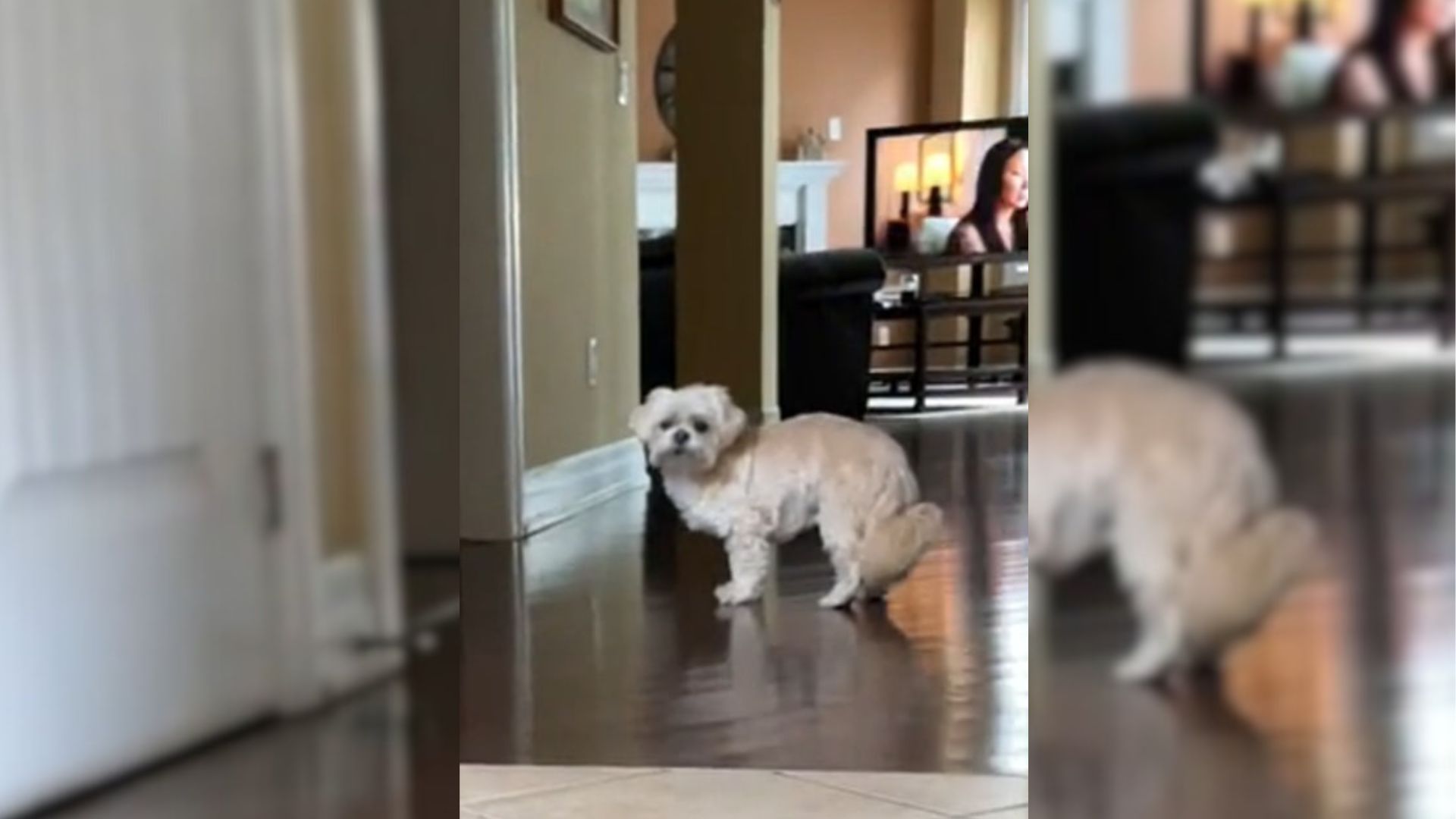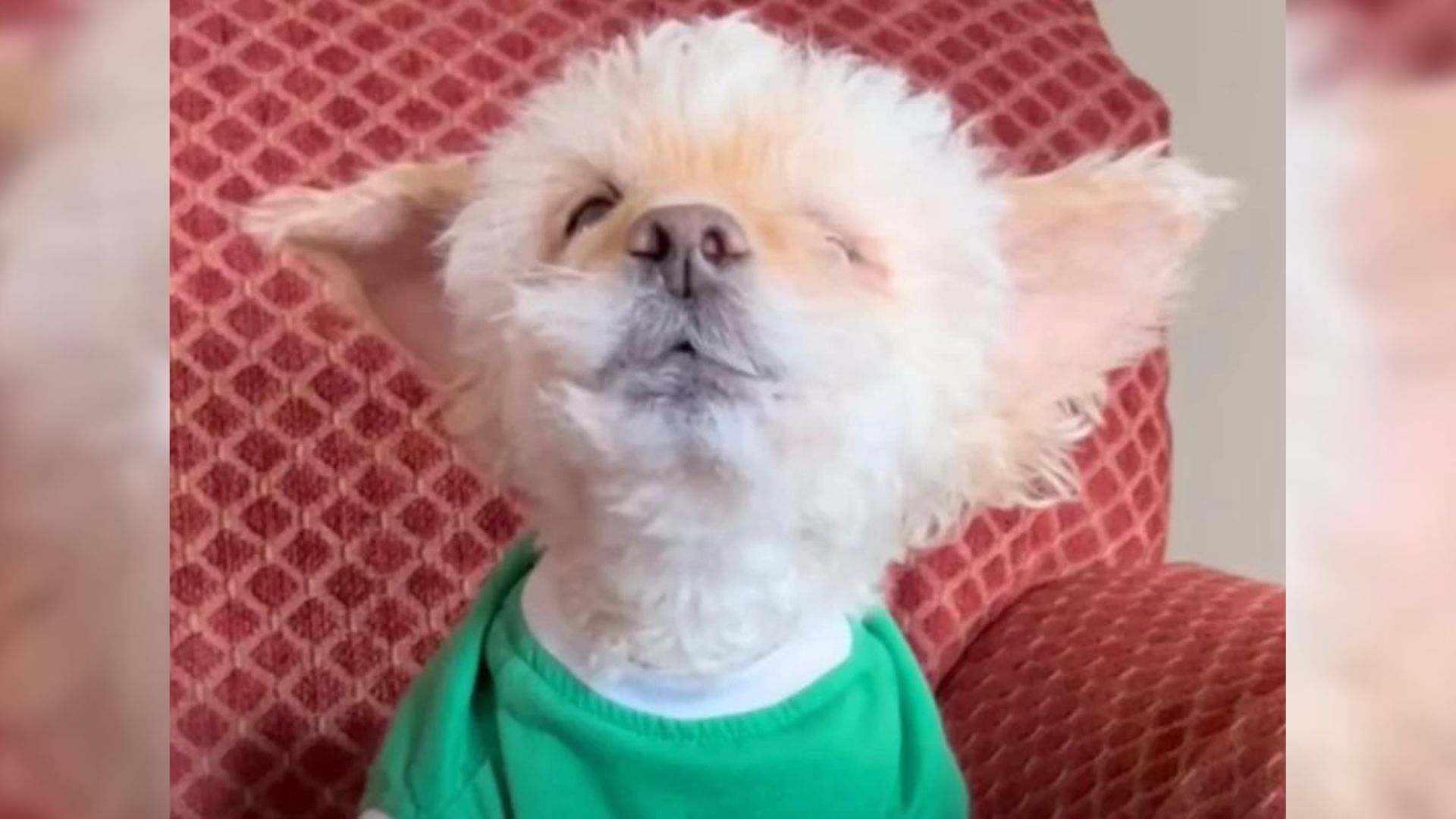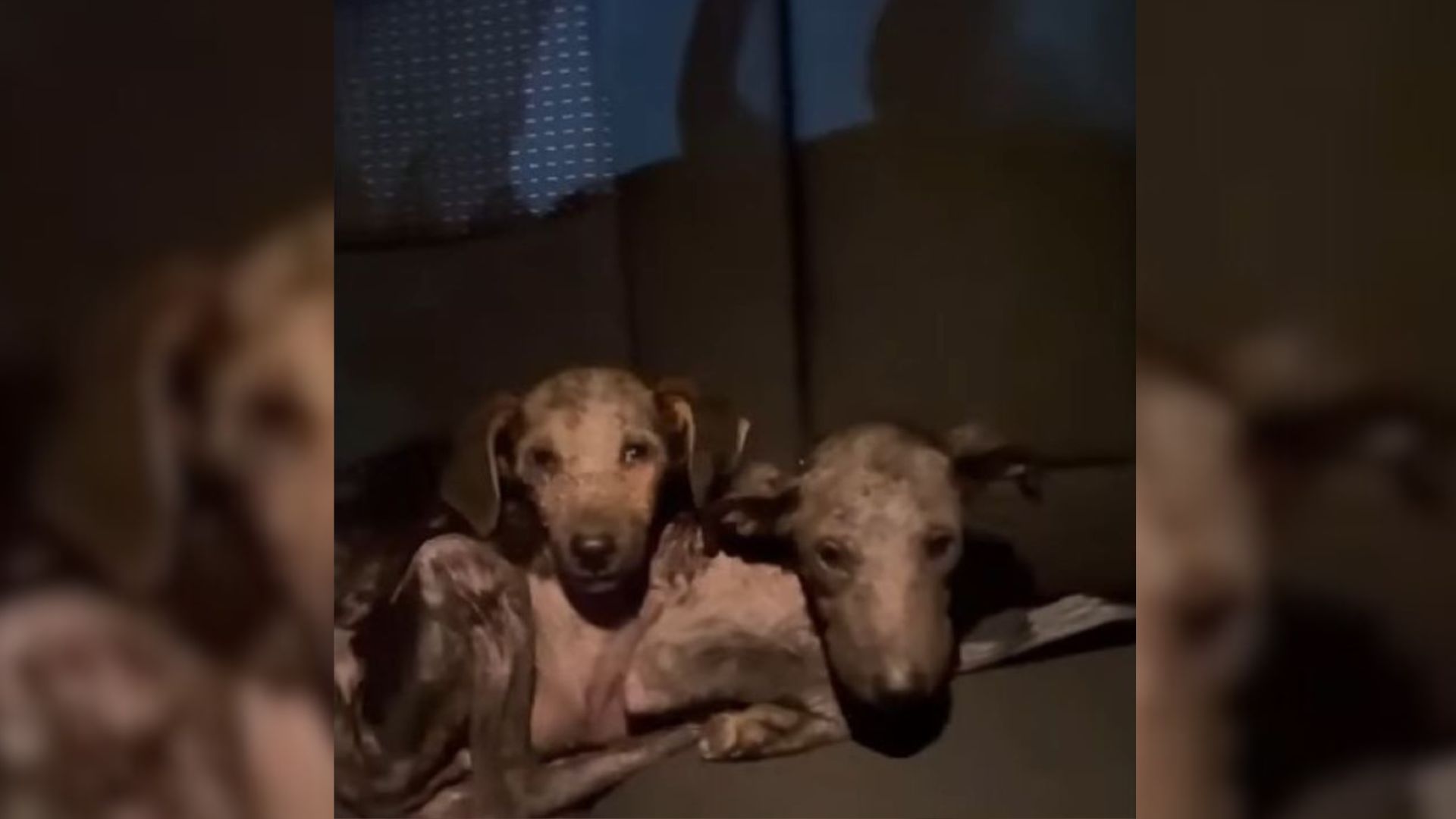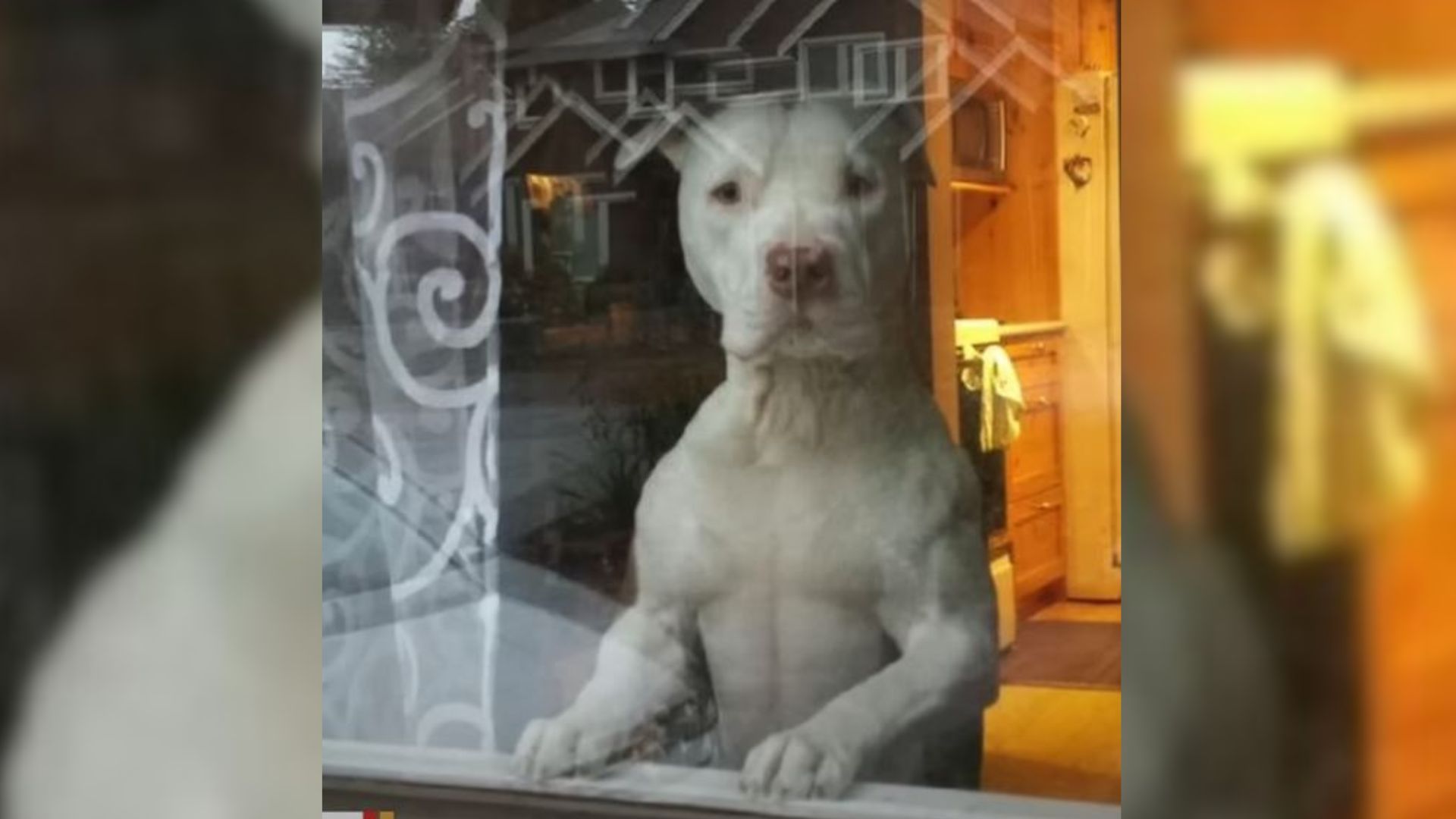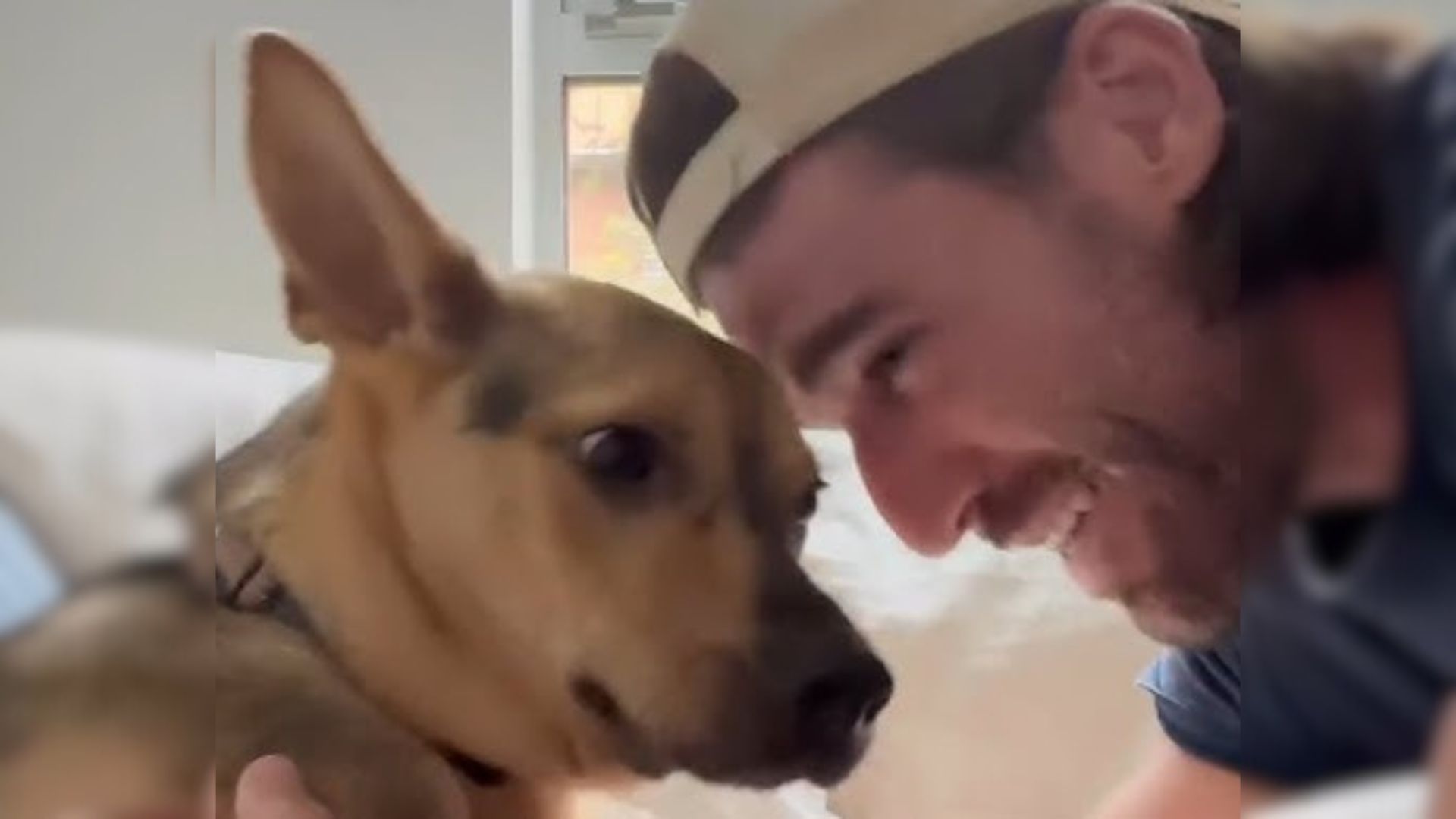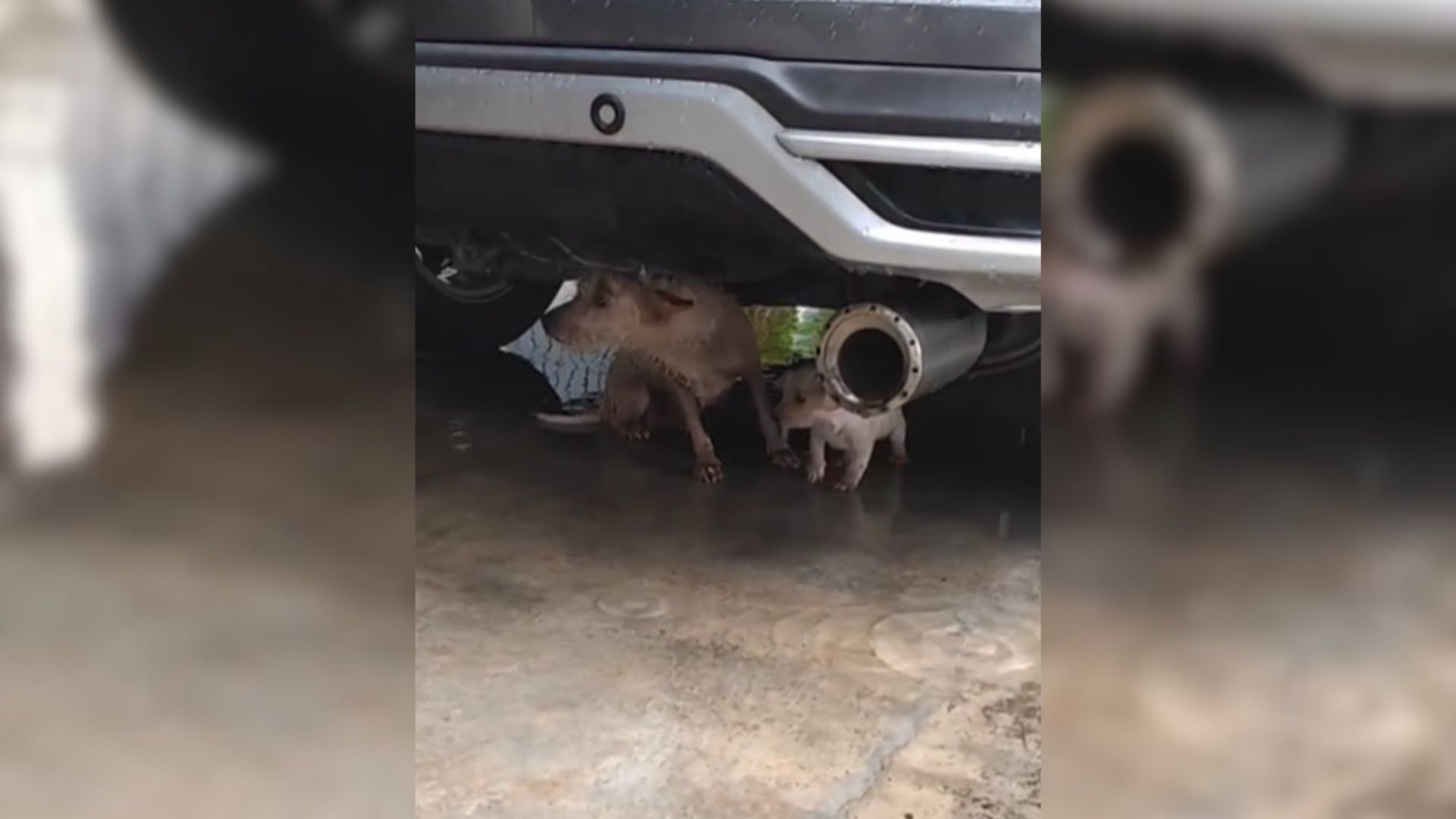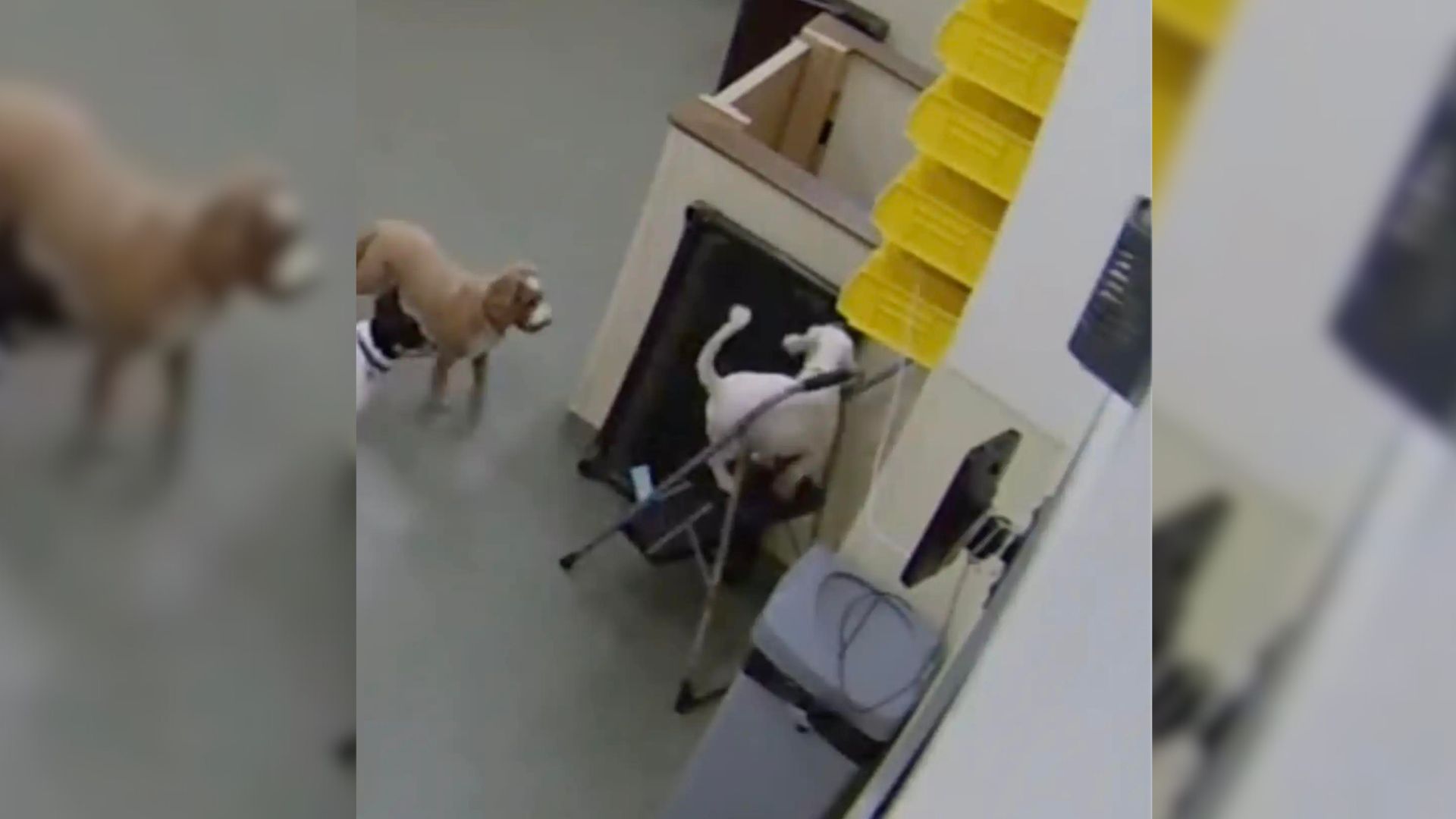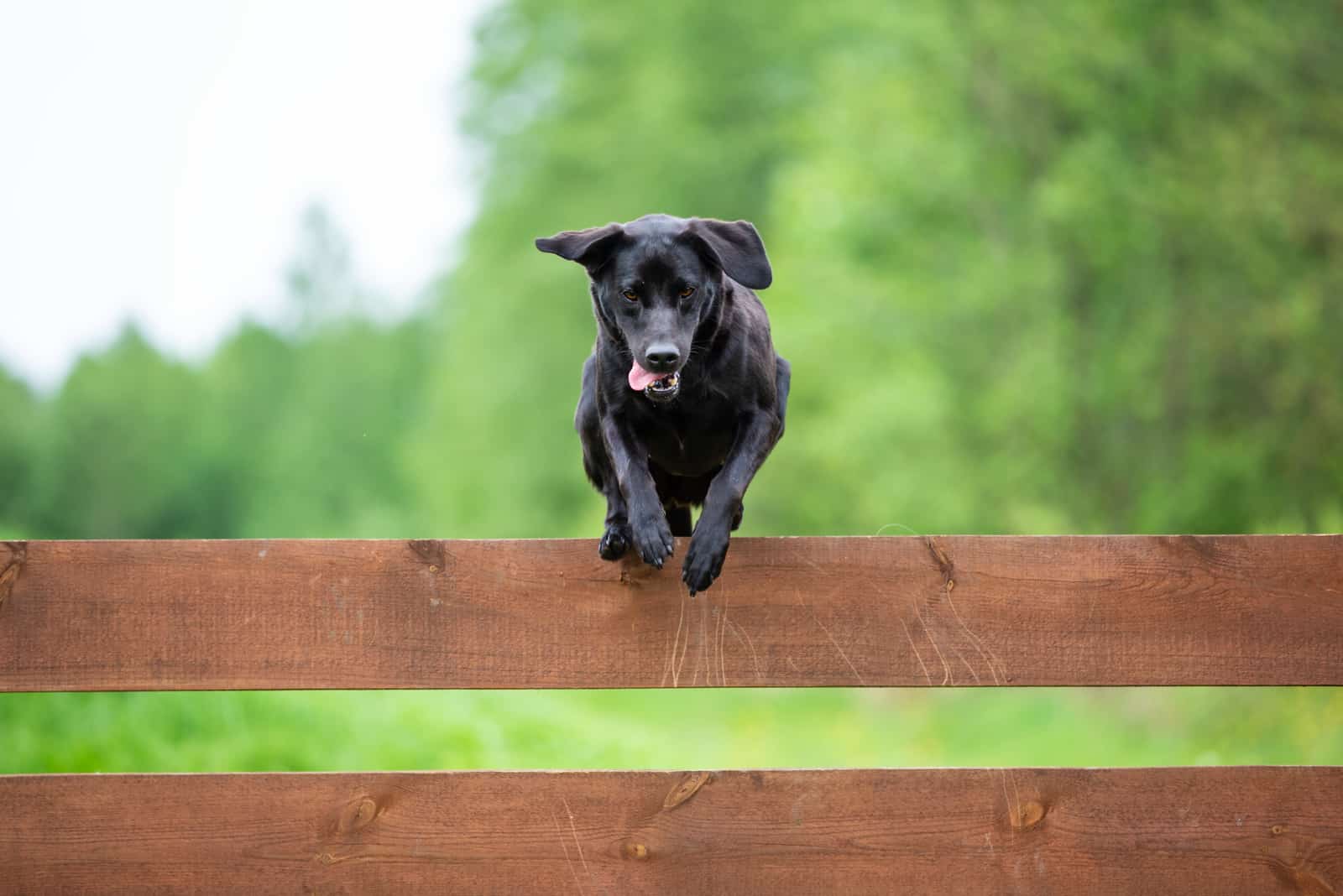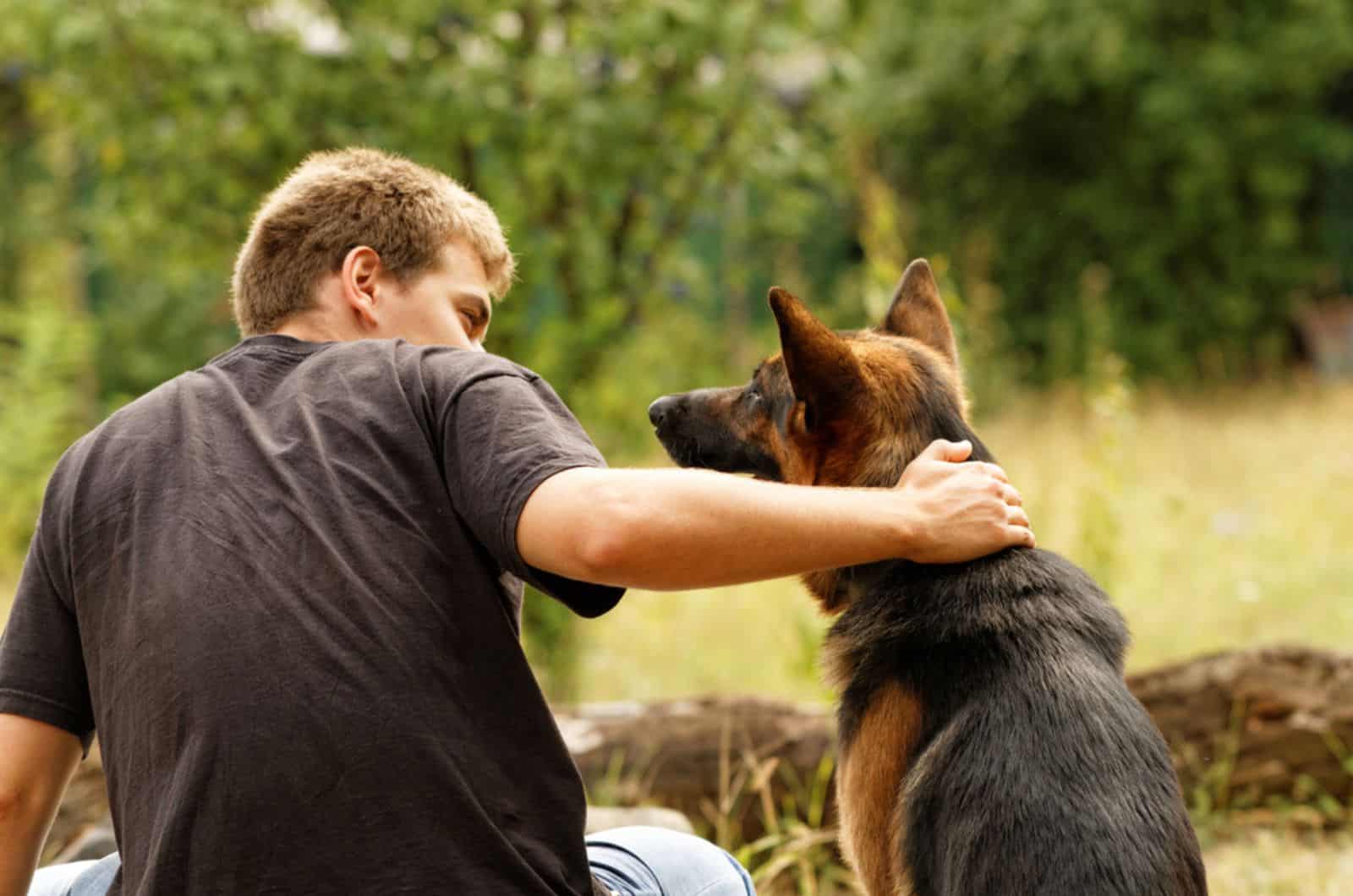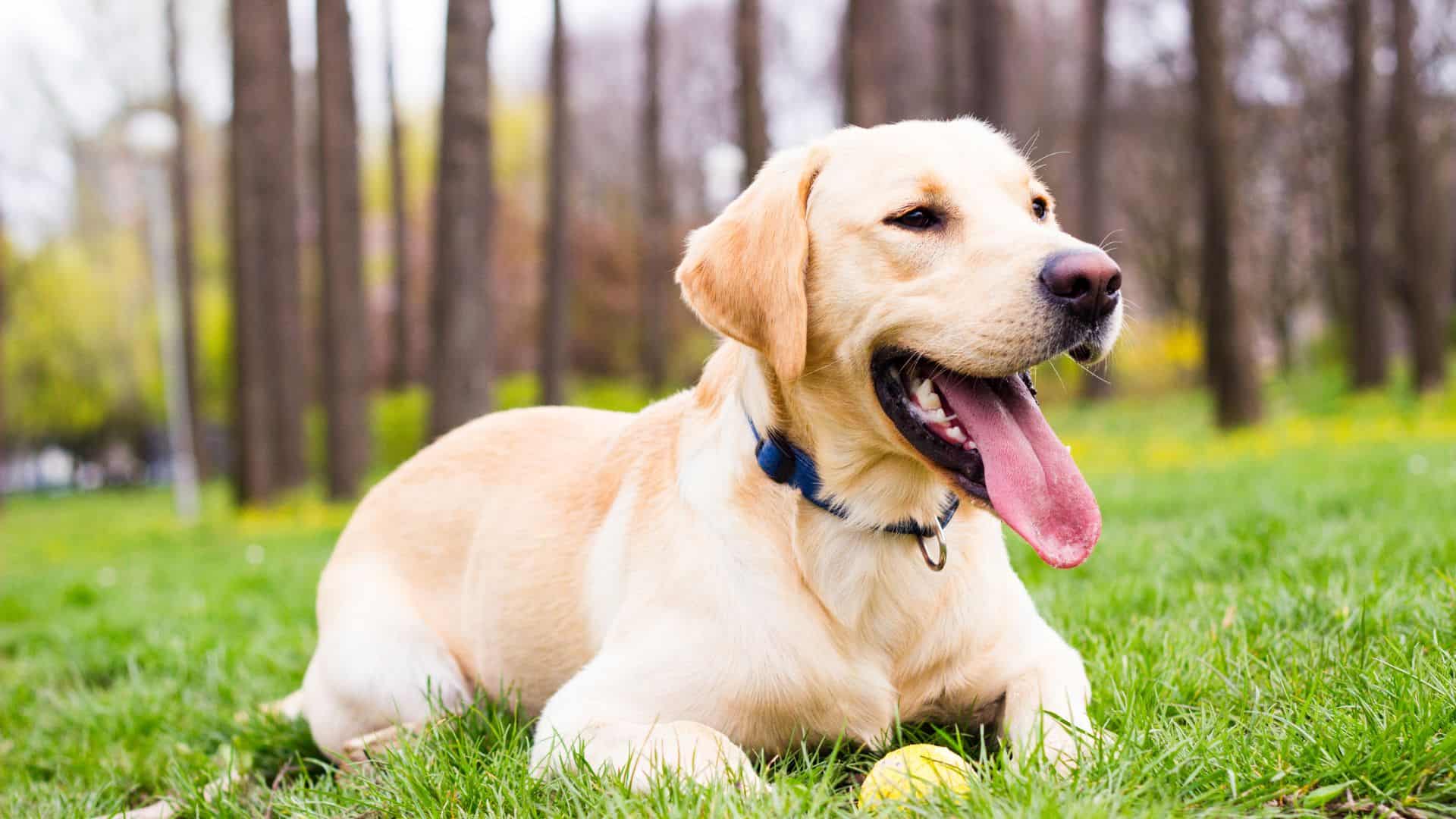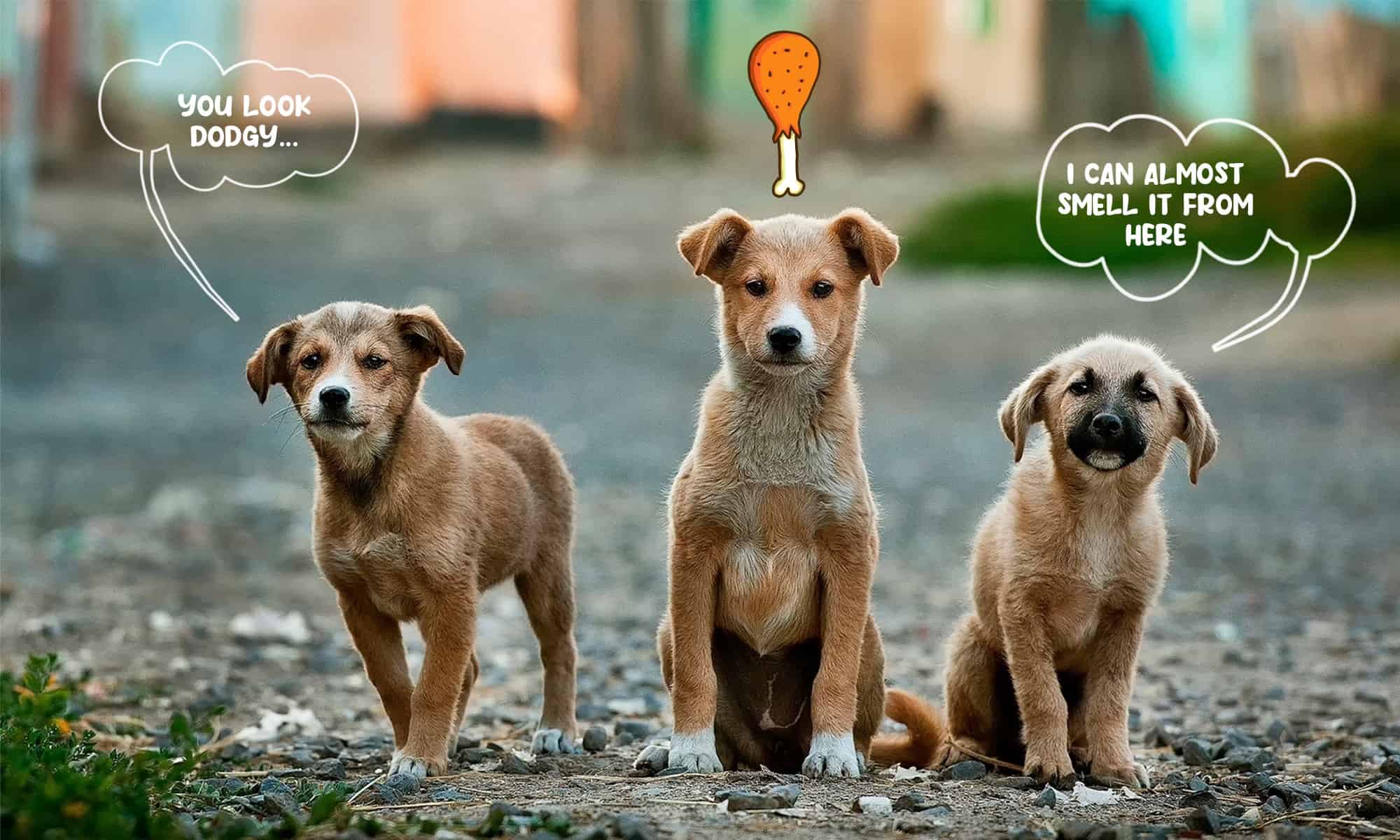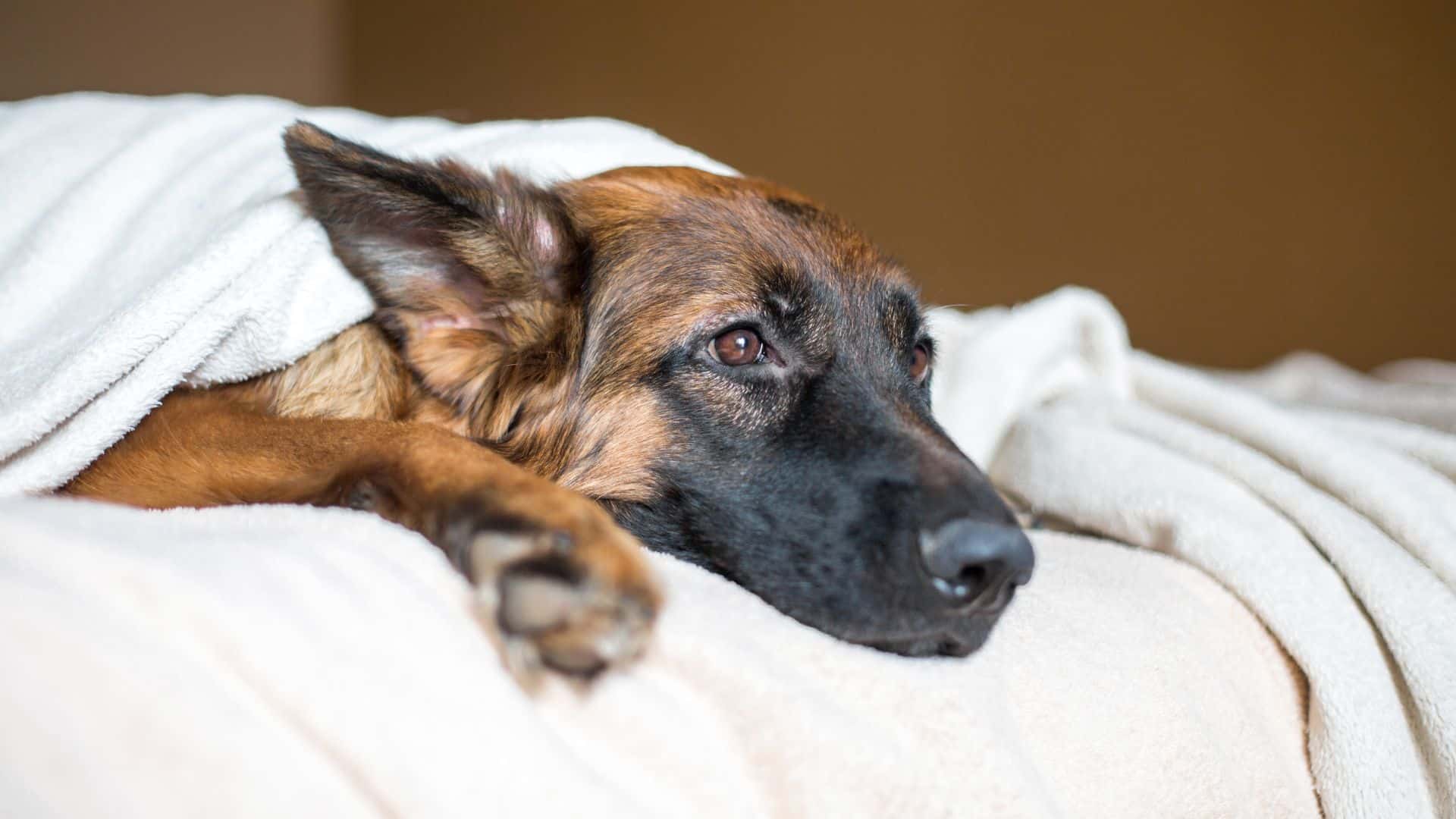When German Shepherds Growls, it is not always a sign of aggression. It is a way of communicating. It may be a warning sign, but it also may be just a sign of playfulness. To answer the burning question, ‘Why Do German Shepherds Growl’, you will want to read further.
Whatever the case is of your German Shepherd growling, we will talk about it.
Growling from a German Shepherd toward its owner is a very significant matter. If ignored, it frequently gets worse.
Your German Shepherd might believe it’s acceptable to bite other individuals in addition to growling at you.
You need to find an answer right away if your German Shepherd is snarling at you. Fortunately, growling at one’s owner is frequent behavior in both dogs in general and German Shepherds.
To learn everything you need, continue reading.
Backing up and keeping your distance is definitely the best course of action if a German Shepherd or any other type of dog starts growling at you. And, the reason for this is that we often mistakenly interpret growling as a hostile warning.
One of the numerous ways dogs communicate is by growling, much like they do when they bark or whine. However, not all growls are aggressive.
Dogs’ many growls can convey a variety of emotions, including fear, property guarding, playfulness, adoration, impatience, and pain.
And, it’s critical to comprehend what it implies, so you can choose the appropriate course of action.
1. Because They Sense Danger
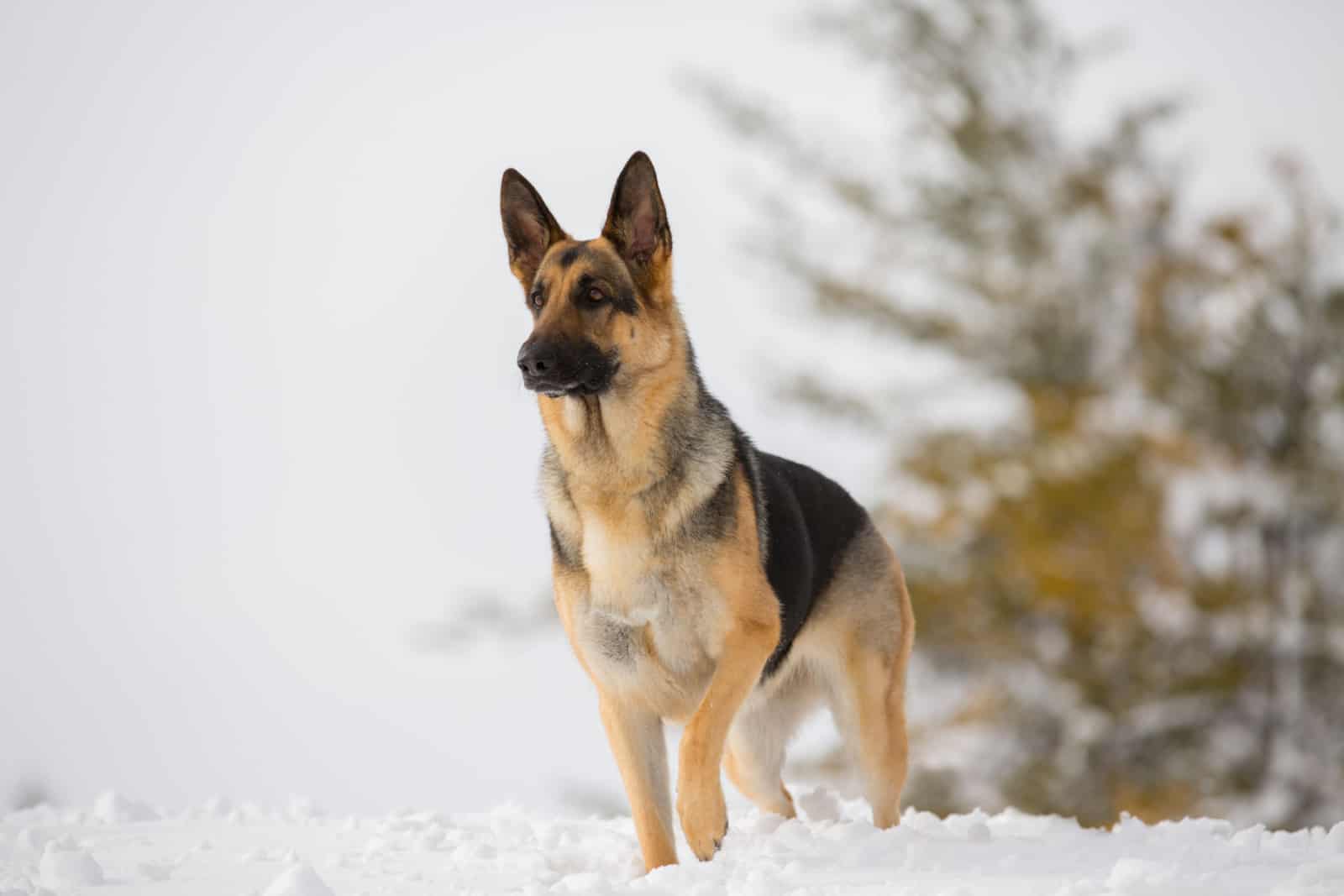
The short answer is that dogs could indeed sense danger, as you presumably already know. We have seen dogs growling in far too many television shows and films in order to indicate that “something is wrong.” However, how truthful is this portrayal?
Typically, when faced with danger, your dog will behave strangely. Among the warning indications you should look out for are excessive agitation, shaking, and growling.
Of course, that person could be the threat if the dog is reacting unfavorably to someone… usually someone you don’t know. Your dog might behave in this manner toward every stranger.
Once more, being aware of your dog’s typical and atypical behavior may help you determine whether he might be feeling threatened.
Your GSD could be attempting to alert you to a potential threat. Since you are the expert on your dog, you will be able to identify which behaviors are most likely not caused by everyday problems like hunger or pests.
By responding appropriately to your dog’s response to impending danger, you are going to do yourself a great favor.
Dogs have long been the subject of scientific study because of how successfully they serve as personal warning sirens. The closest that scientists have come to describing a dog’s capacity to detect danger is by determining how keen their sense of hearing and smell are.
Dogs have an exceptional sense of smell, in addition to having a hearing range of up to 60 Hz, compared to the human hearing range of 20 Hz. They can detect things like a change in atmospheric pressure when a tornado is building because of their superhuman powers.
Also, researchers have found evidence that suggests dogs might well have UV vision. This suggests that they may have significantly stronger night vision, enabling them to perceive details that we wouldn’t be able to.
2. Because They Are Displaying Aggressive Behavior
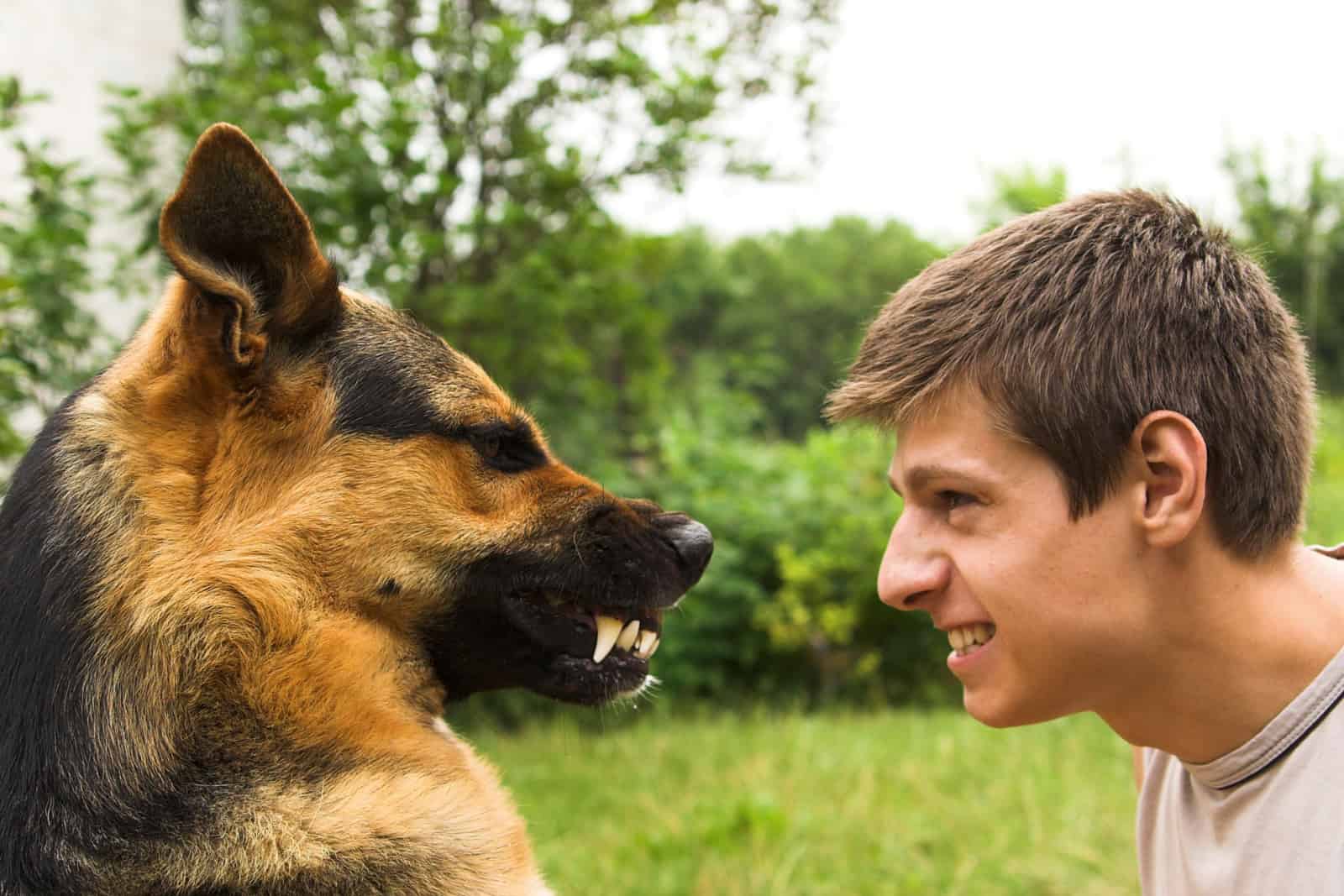
Among the most audible growls is an aggressive one. Your dog’s body language is rigid, and you’ll probably notice him snarling and baring his teeth. Their back hair will also stand up.
A dog will nudge forward to close the gap between himself and the target, which is one of the most telling symptoms of an aggressive growl.
Aggressive growlers may be trying to assert their authority and cause a fight when they are around other dogs.
A dog that is snarling viciously is hazardous. He is likely prepared to strike. Don’t let this aggression persist at the expense of your dog’s welfare and the safety of others. Leave the area right away if your dog is on a leash.
Dog aggression has many different root causes, and if untreated, it can result in major issues. You should consult a dog trainer or behaviorist for professional advice if your dog constantly growls in an aggressive manner.
3. Because They Are Anxious
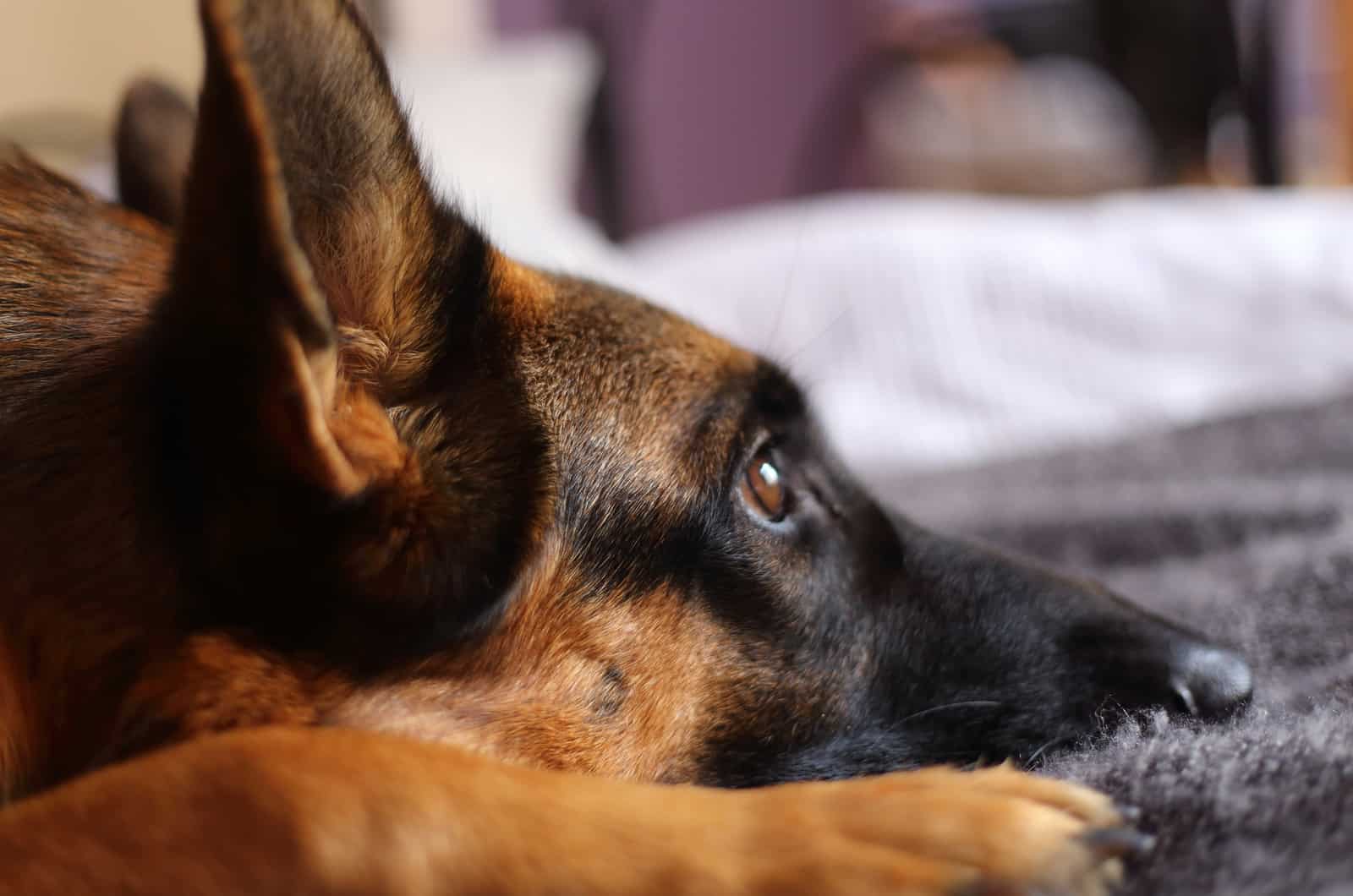
This may also be the answer to Why Do German Shepherds Growl. Your German Shepherd will frequently end up growling if it is recalling an unpleasant experience from its past that seems to be repeating itself.
This is a signal to stay away because if necessary, they will protect themselves. Even though the setting your GSD is in may not seem bad, if they were scared at any point, they might have linked bad feelings with it.
In new situations or with unknown objects, some German shepherds might grumble. For instance, whenever we add something new to the garden, my dog frequently growls and barks. They approach it cautiously since they are unaware of it, even if it poses no threat to them.
However, if there is something new about you, the same thing may occur. Perhaps you’re dressing in something they haven’t seen before or acting differently than usual. If they’re unsure of what it is, they might start growling as a warning.
Anxiety is something we all experience, but respond differently to.
Again, dogs that have already experienced cruelty or those that have arrived from a dog shelter are more prone to experience this.
Having said that, many German Shepherds are also, by nature, more alert than other dogs.
4. Because They Are Resource Guarding
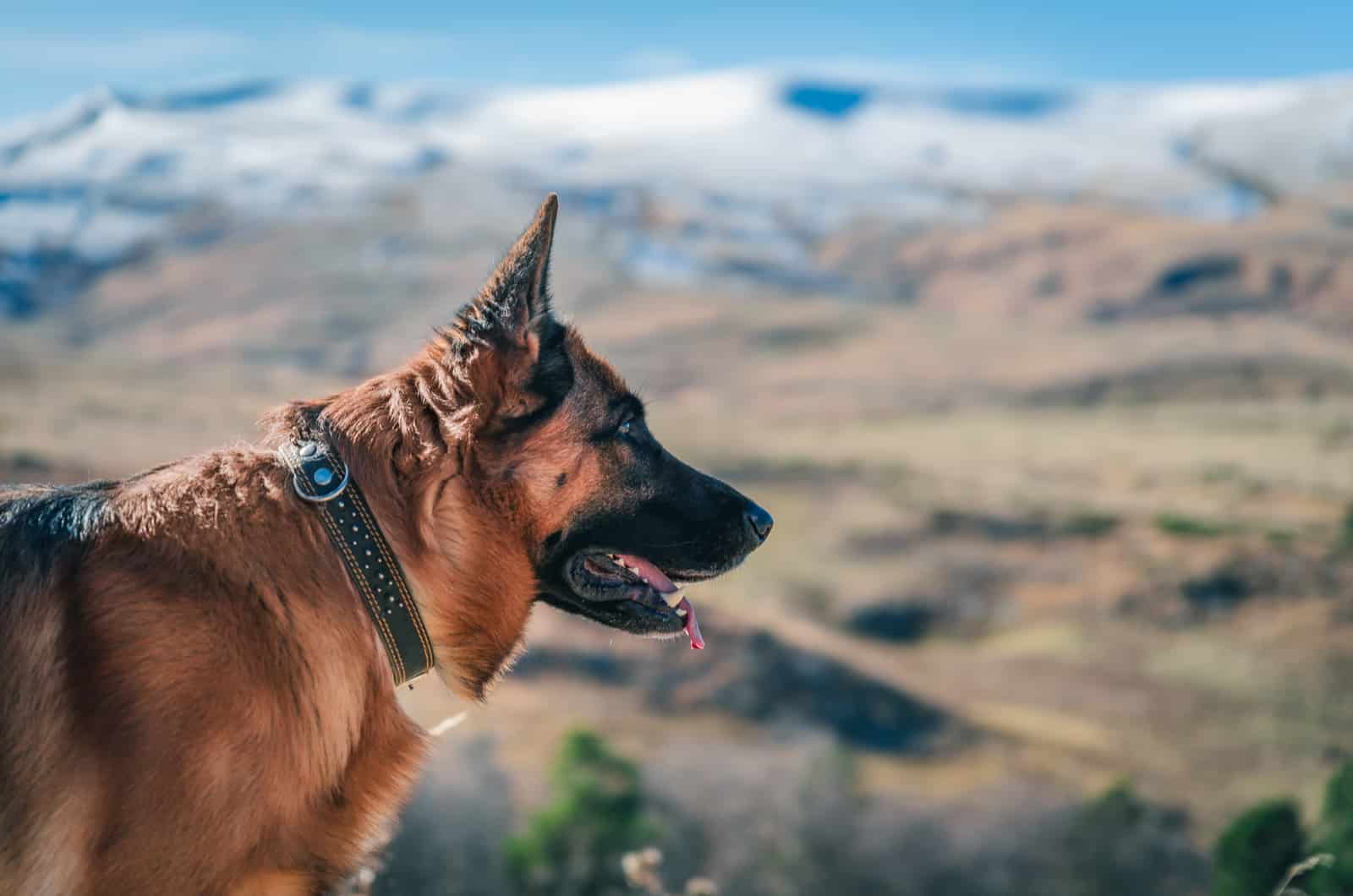
A dog won’t think twice to alert you if anybody trespasses on their territory or takes their food, treats, or even toys. This is frequently demonstrated by a low growl and abrupt barking.
Some dogs will frequently begin growling if they are bothered while eating.
Some pet dogs have a propensity to develop an obsession with their owner. Additionally, the puppy may switch into a guarding or protective mode when a stranger comes near them.
Backing away from the residence or the resource they are guarding is frequently the best method to quiet their growling. With this, the problem ought to be swiftly and stress-freely resolved. They aren’t after you, after all. They are simply defending their area.
Growling may indicate resource guarding if your German Shepherd perceives something as being theirs and is especially guarded.
For instance, resource guarding would appear if they snarl when you attempt to take a toy away from them. Dogs that have been neglected or that have arrived from a shelter are more likely to experience this.
Some dogs, nevertheless, have a tendency toward this kind of attitude.
If your dog is protecting a resource, you must act fast to resolve the situation if this is an unwanted behavior for you. The best option is frequently to see a veterinarian or a dog behaviorist to resolve the problem.
5. Because They Are Being Playful
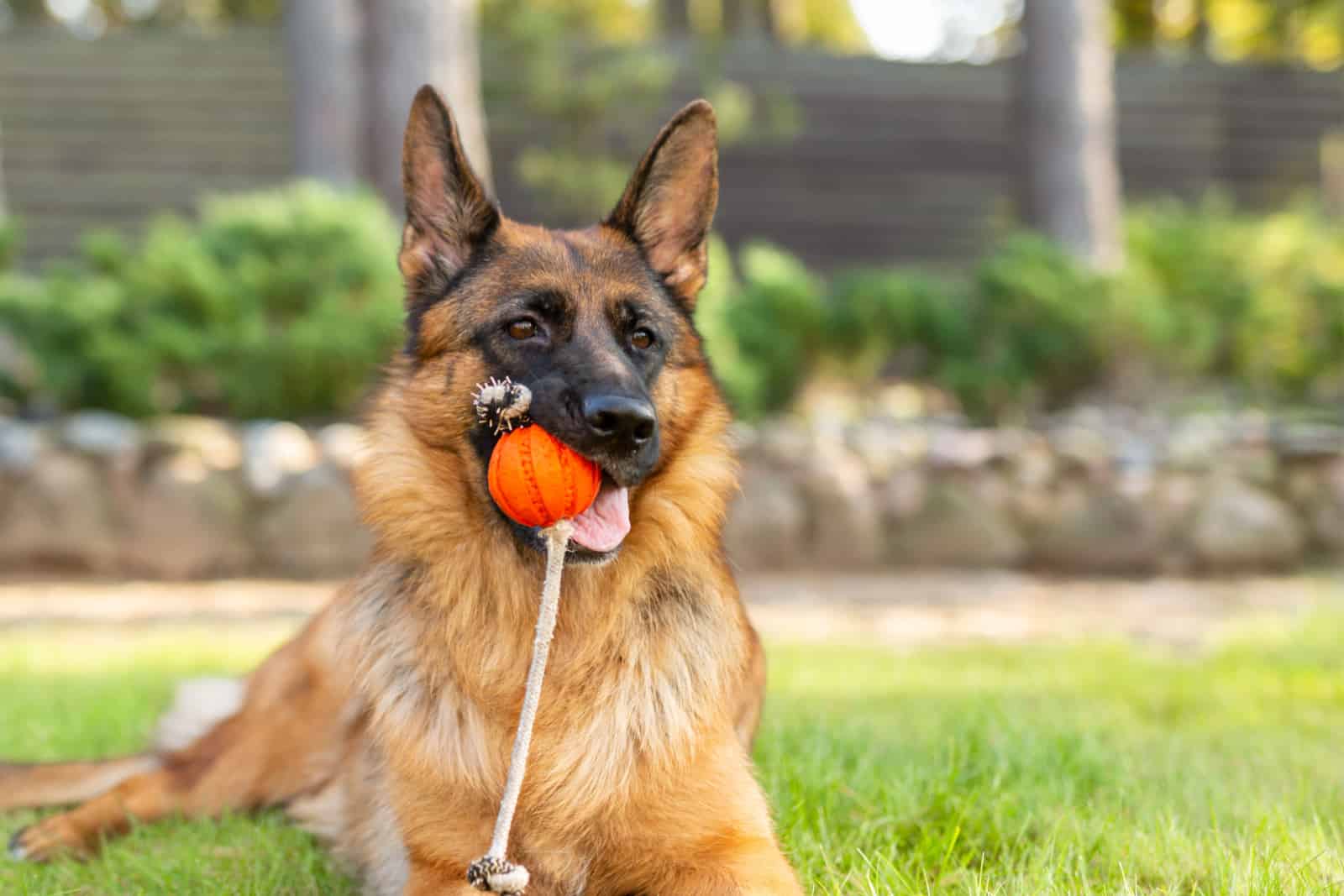
During play sessions, dogs can be quite expressive, and their growls might appear terrifying to some onlookers or even rookie dog parents.
When playing tug-of-war or other similar games, many dogs may growl. As they wrestle or chase other dogs, they may also growl at them. There is nothing to be concerned about with this kind of growl.
A playful growl is quite acceptable. Nevertheless, you need to pay attention to your dog’s body language. You may simply want to pause the game for a while until things have calmed down if you notice that the growls are becoming increasingly fierce.
Playtime can resume once the energy has subsided. This will assist you in preventing a conflict from developing from play growling.
I’ve always had dogs, and they all growl when they play. They snarl at each other frequently, but mostly while I’m playing a tug-of-war game with them.
The growling isn’t actually angry despite the appearance that it is. In particular, if you pay close attention, you’ll hear that fun growling is typically a little louder and shorter-lived.
You shouldn’t be too concerned if your German Shepherd is snarling amusingly. You should still keep an eye on it, though, in case additional aggressive behavior emerges.
This behavior is most frequent in early age. When your dog growls while you are chasing each other… fear not! Your GSD is just excited, and this is not any kind of bad behavior.
6. Because They Are In Pain / They Are Hurt
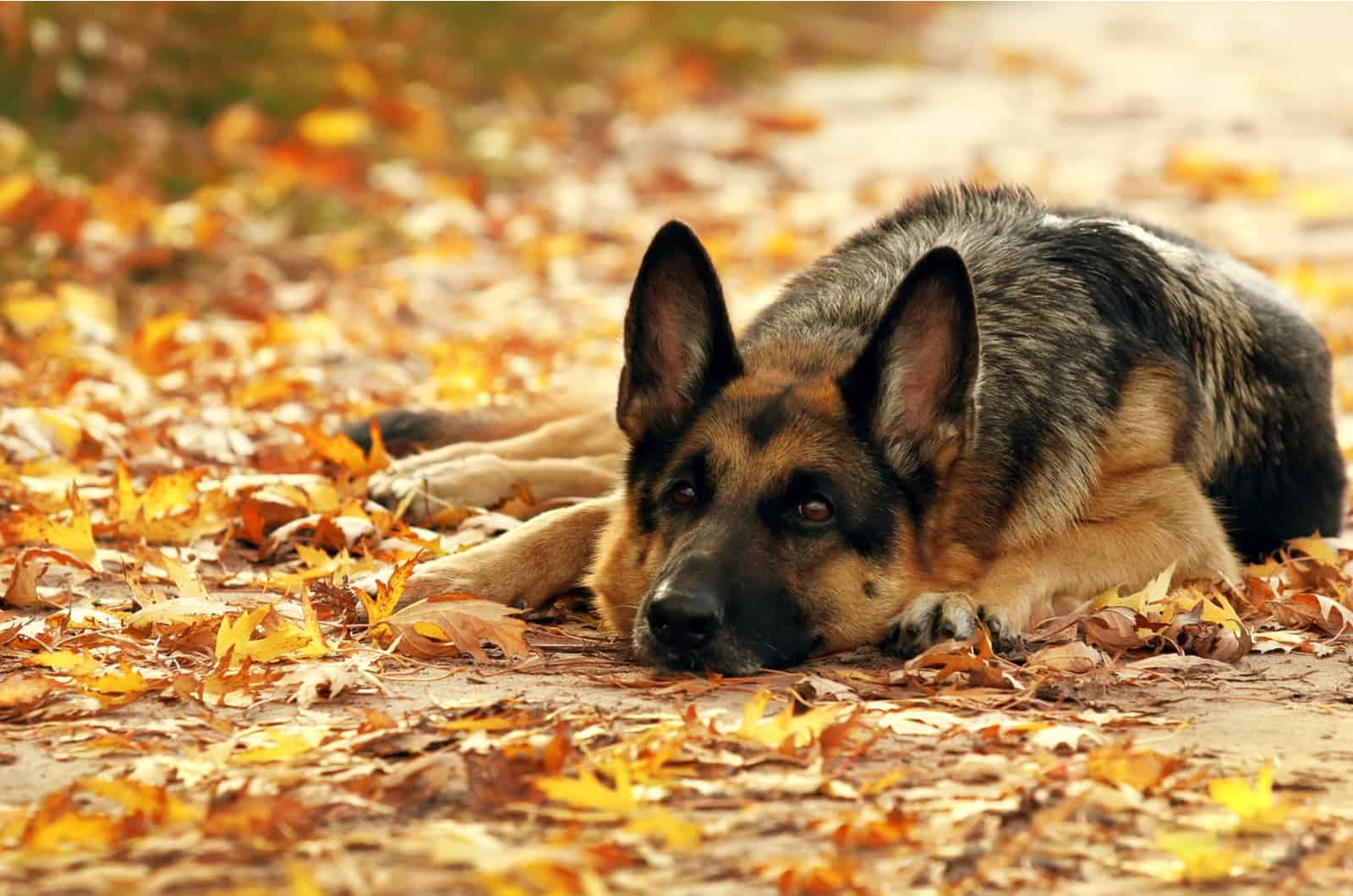
Growling is among the most typical symptoms of discomfort in dogs. These growls typically come with yelping. Yelling has a high pitch, and can sound like a little squeak or complete baying. Other causes of dog growling include illness and injury.
You should keep a close eye on your dog. Is your dog isolating? Does it have a limp? Or, have you seen a shift in behavior?
The growling will get more intense if the discomfort or diseased location has gotten worse, not because they dislike you, but rather out of concern that further harm will occur.
Your dog’s unpleasant growl is a clear indication that he has had enough, and the best course of action is to take him to the clinic.
All dogs, even German Shepherds, have two major issues. Firstly, they are unable to speak with you and explain the situation. Secondly, they frequently put themselves in dangerous circumstances that could result in injury.
Make sure your dog isn’t in discomfort if it has started snarling at you out of the blue.
If they begin to growl when you touch the part of their body that is hurting, you can usually tell that they are in pain.
However, there are typically additional indicators present if they are growling out of discomfort. Look for any immediately-noticeable indicators of injury first.
If there are no visible signs of damage, you can see red flags if your German Shepherd dog is panting, not wanting to eat, remaining by itself, and refraining from their usual favorite activities.
7. Because They Are Happy
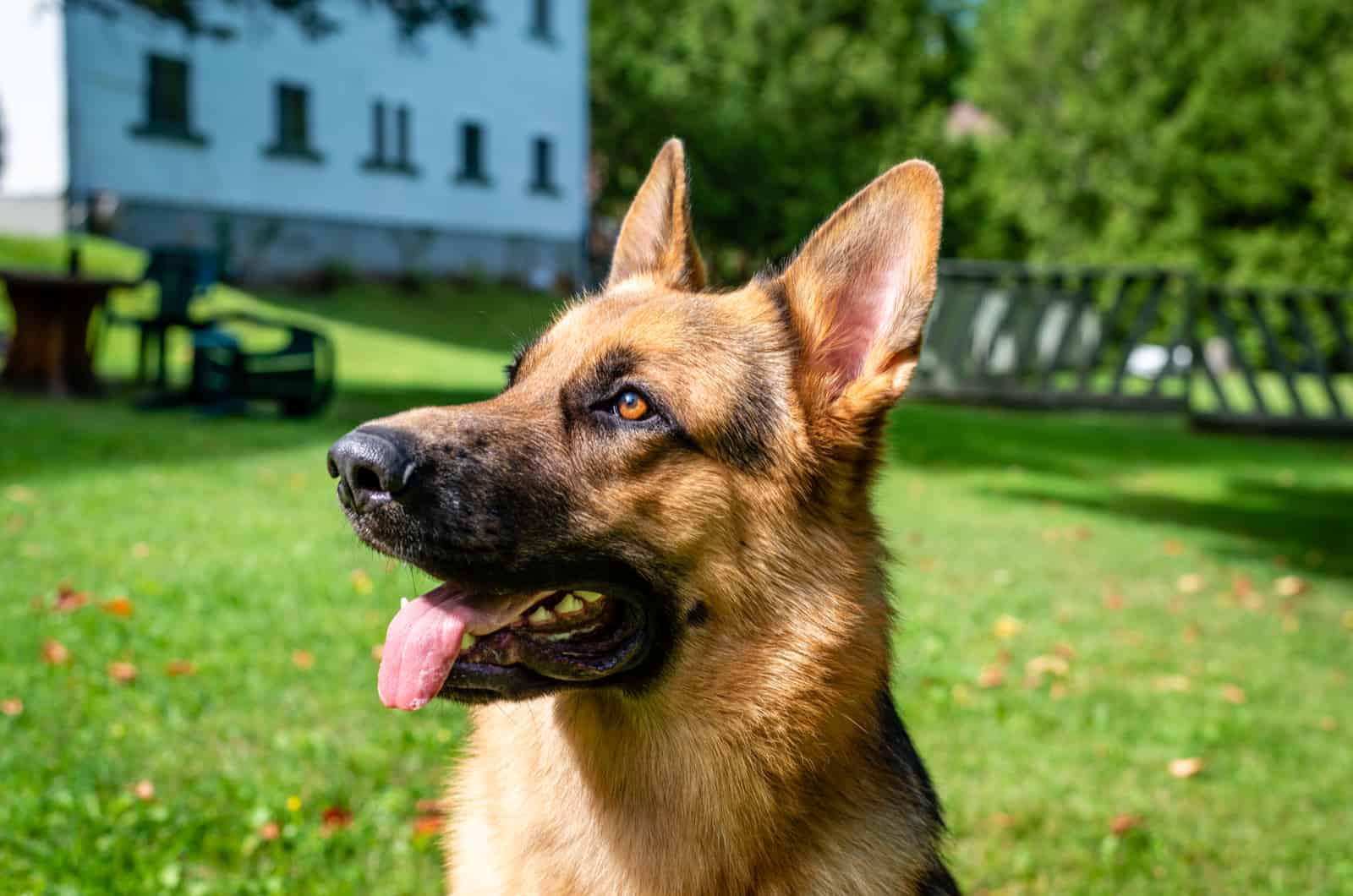
If your German Shepherd is joyful or ecstatic, they may growl. These canines are renowned for their affection and love.
German Shepherds frequently exhibit a variety of behaviors when they are happy, such as barking, growling, and crying.
These growls will probably develop into barks, along with a wagging tail. To express their happiness, your German Shepherd could also lick and leap on you. To make sure they are not stressed, be aware of these symptoms.
Many dogs will growl when they are happy or appreciating something in addition to when they are playing. For instance, when you stroke or rub your dog’s tummy, the animal might occasionally growl.
I initially thought I was disturbing them, but as I observed their body language, it revealed something very different.
When I stopped massaging them, they used to get up and nuzzle into me again, so I could stroke their tummy. They then started wagging their tail with excitement.
Check to see if your German shepherd is growling out of happiness before you start to worry about it.
8. Because They Cannot Wait To See You
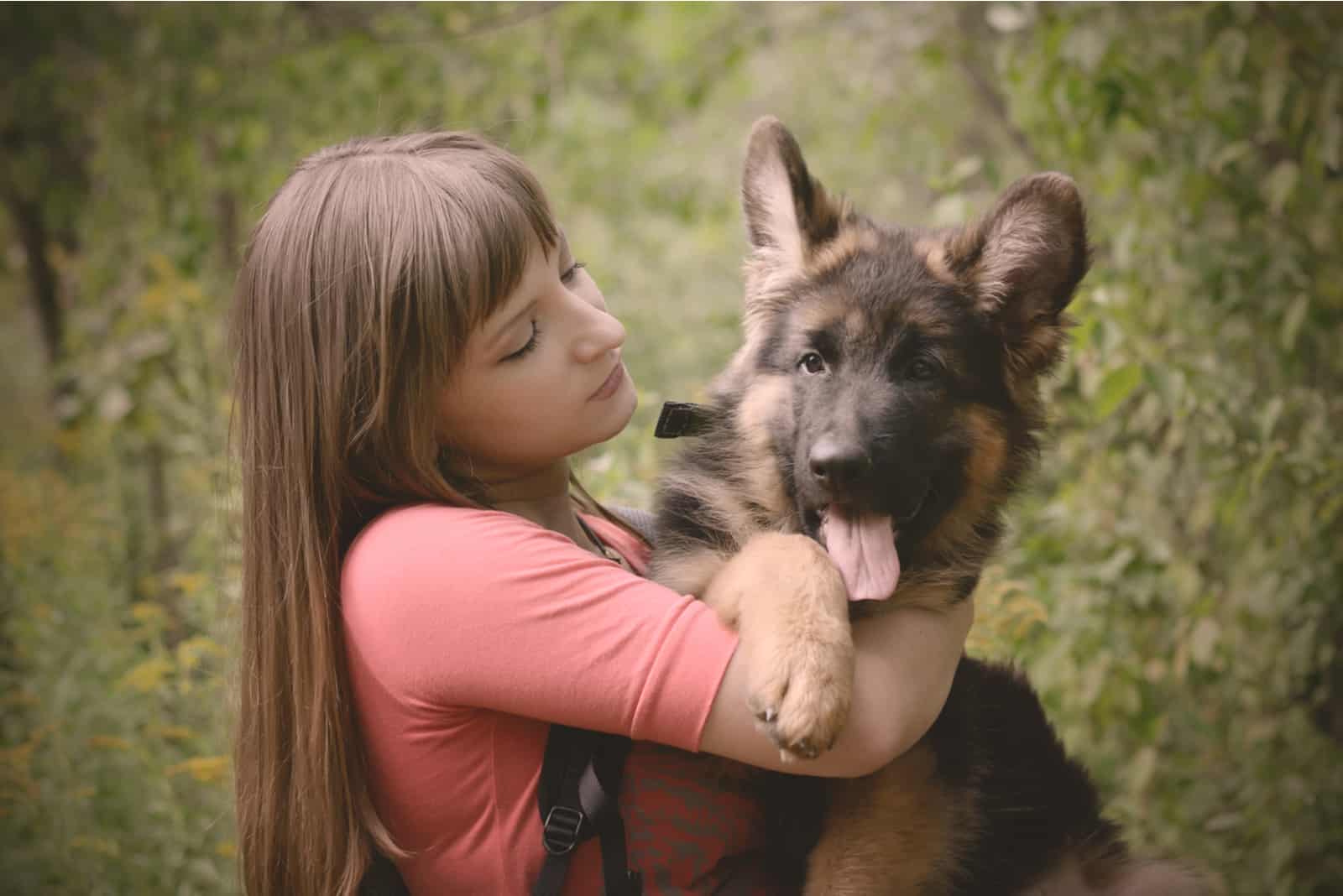
By growling for your attention, your German Shepherd can be excited to see you and wants to spend quality time with you.
While you are in the other room, you might hear them growl. Cheerful German Shepherds may make a variety of noises to express their want for company and affection.
When your dog is excited to meet you, they could occasionally start growling. For instance, if they can’t reach you while you’re simply waiting outside your door, they can start growling.
Again, while this could seem aggressive, they are actually just delighted to meet you. Although this habit is cute, it’s the one you should train them to stop doing.
Pacing, trying to jump, nipping, growling, whimpering, and growling at strangers and other dogs are some behaviors that can happen after this one.
These behaviors are equally present in German Shepherd puppies and in adult German Shepherd dogs.
German Shepherd owners already know that a growling dog isn’t necessarily a dog exhibiting negative behavior. That is just a way of canine communication, and because of that, we are learning about reasons behind each type of growling.
9. Bad Memories From The Past
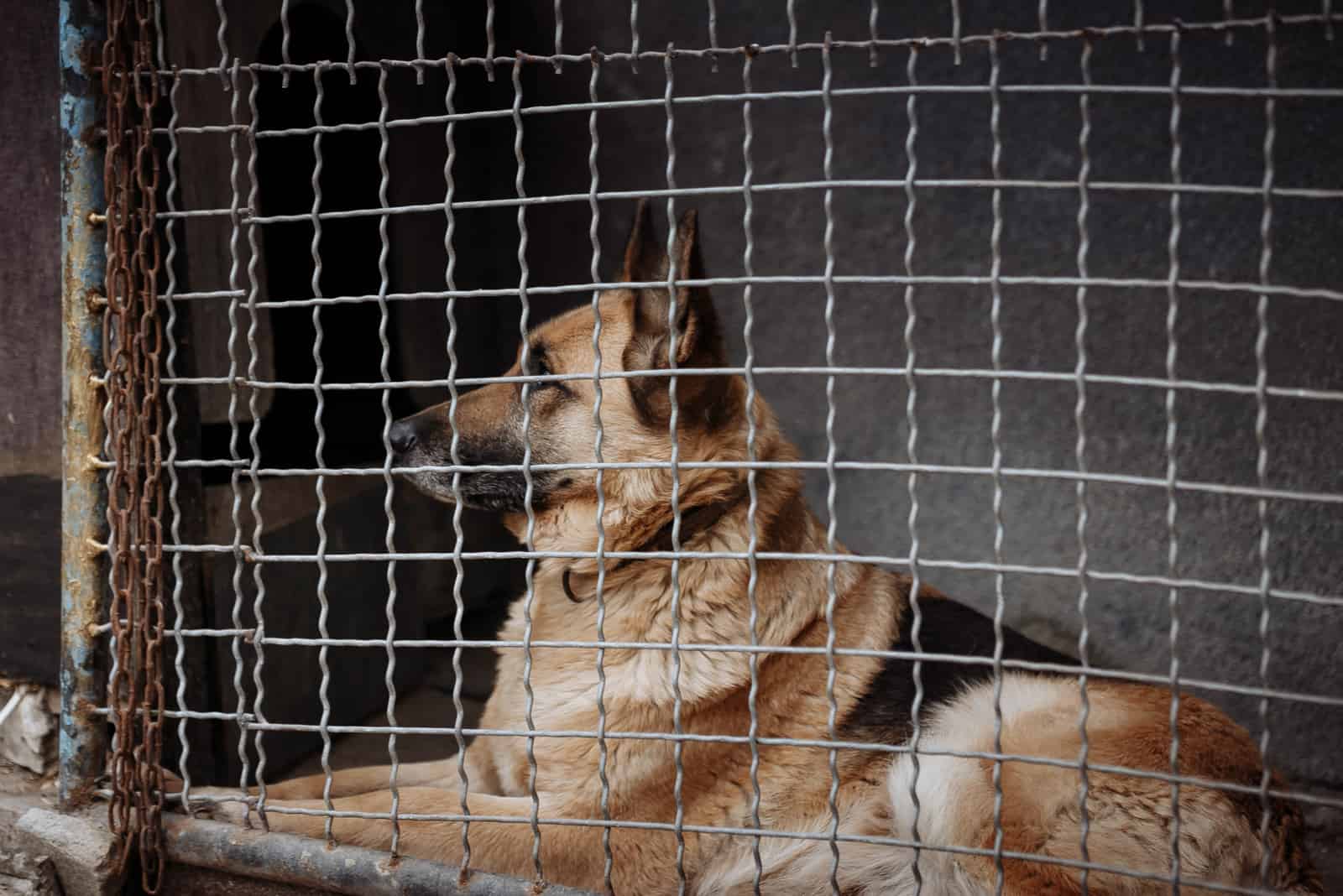
German Shepherds may harbor bad memories, particularly if they originate from careless or demanding environments.
If your dog has been mistreated or abused, it may be haunted by painful memories that cause it to experience difficult emotions like fear or helplessness.
Some dogs might even experience nightmares related to these memories, which will wake them up via growling or barking.
Your German Shepherd will frequently end up growling if it is recalling an unpleasant experience from its past that seems to be repeating itself.
This is a message to stay far away because if necessary, it will protect itself. Even though the environment your GSD is in is not bad, if they were frightened at any point, they might link bad feelings with it.
Many dog breeds, especially adopted dogs, have problems with this. There are a number of reasons behind it, but the main one is abuse.
However, dog training and positive reinforcement may be helpful in this case. Your dog needs to start feeling safe around you, and you have to find a way to achieve that. Teach your dog that your home is their safe environment.
Some Other Questions You Might Want To Resolve
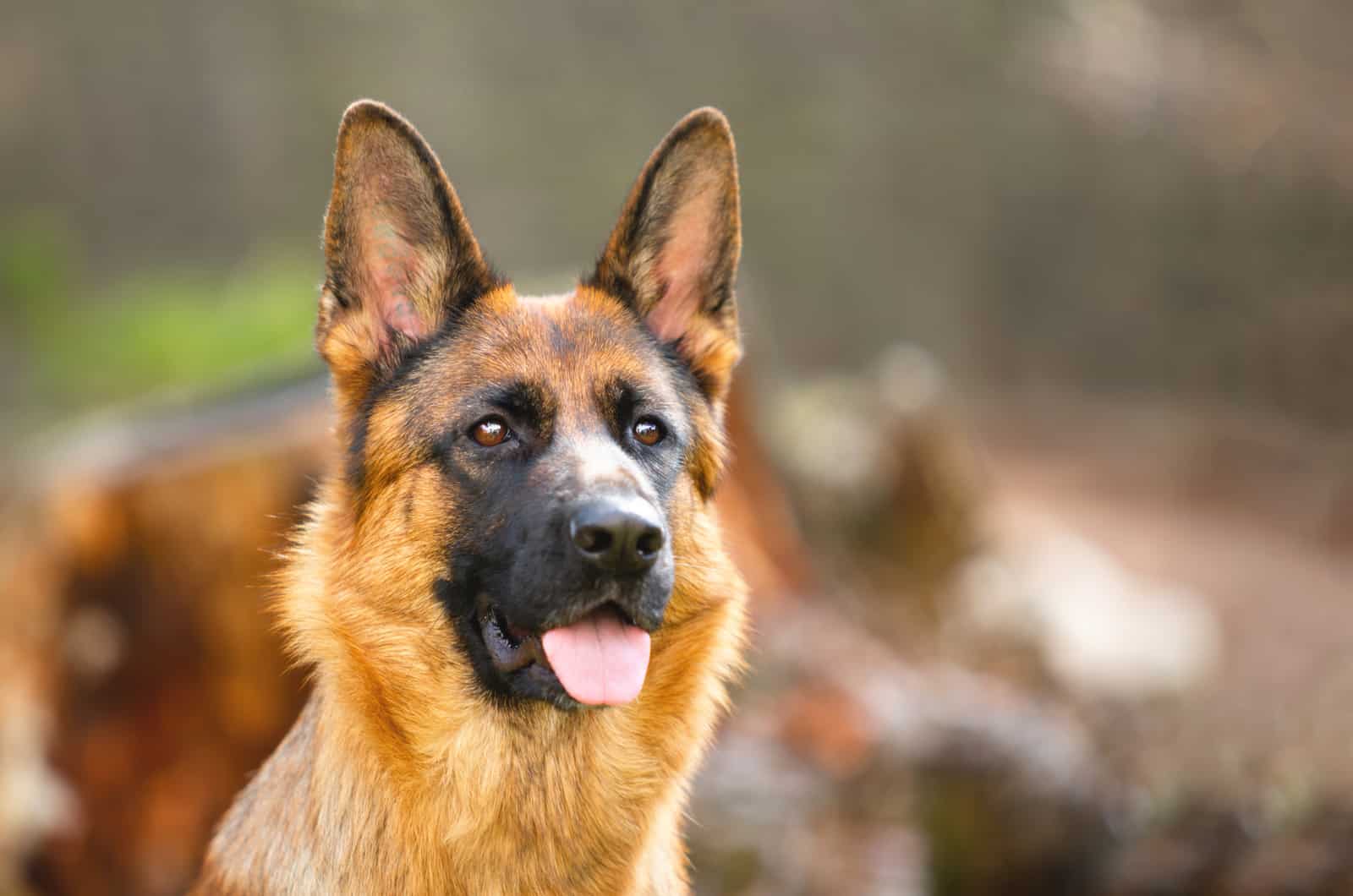
To answer some of the burning questions, we have prepared clear and concise answers.
The key is having the ability to differentiate types of growls!
1. Why Do German Shepherds Growl When They Are Scared?
The most frequent causes of dog growling include fear, pain, territoriality, and possessive violence. Some dogs even snarl while having fun. Growling in this instance does not necessarily denote hostility.
One of the numerous ways dogs communicate is by growling. If you try to stop your dog from growling, you’ll be training him to stop using a warning signal that is an essential component of his communication style.
In the future, your German Shepherd dog might decide to bite without first warning you by growling. Rather than trying to conceal the dog’s growls, the secret is to identify the sources and resolve the underlying issue.
2. What Triggers A Growl?
Dog communication includes growling. When upset or uneasy, your dog cannot verbally communicate that to you. Most dogs will start communicating with you through their body language.
It may growl to let you know how it feels if you are unable to recognize the more subtle cues. The most frequent causes of dog growling include pain, territoriality, possessive violence, and fear.
Some dogs even snarl while having fun. When two dogs are engaged in safe, healthy play, play-growling is frequently observed. The growling in this instance does not necessarily denote hostility.
It’s still crucial to pay attention to your dog’s body language in order to ensure that play-growling doesn’t escalate into a dogfight. When you and your dog engage in tug-of-war, you might hear snarling as well.
Except your dog acting aggressively in other ways, a gentle growl is not necessarily a bad sign. It’s crucial to stop the game if your dog bites at your hand, rushes at you, or starts growling ominously.
There are various possible triggers for your GSD’s growl. You should try to understand what is behind the sole act of growling, and see how your dog feels before it actually growls.
To understand this, you may want to consult a professional trainer who already has a complete understanding of what each growl means, what is bad and what is good behavior, and the common reasons behind a dog’s growling.
However, you have to understand that growling is a reaction to some feelings in the first place. Taking a step back in those situations may just be the best bet.
3. Why Does My German Shepherd Growl At Family Members?
If your German Shepherd growls at your family members, it could be either because they were not introduced to them when they were young or because they perceive them as being menacing.
This kind of behavior often happens when the dog is adopted from a shelter or from the streets, or even if your dog was not raised properly from an early age.
However, if your dog has never barked at any family member or never showed any sign of aggression, but you feel some weird vibes from that family member, too; bear in mind that your dog might be sensing something you don’t.
If these things happen all of a sudden, maybe you should pay extra attention to the family member your dog is particularly alert around.
Final Word
It is not that hard to understand why do German Shepherds growl.
As you can see, the problem of a German Shepherd snarling at its owner is complex. It’s crucial to put a stop to the behavior as quickly as you can, even though German Shepherds, which growl, should always be approached with extreme caution.
I hope this post has given you some insight into why your German Shepherd might be growling. It’s vital to remember that not all GSD growls are an indication of aggression.
Sometimes, the few sounds that our cherished pets have in their repertoire are only an attempt at communication.
They might just either be alert or be trying to tell you that something is off. However, they might just be overly excited, enjoying their playtime, and letting you know that they are having fun.
If after reading this article, you feel that your German Shepherd dog is growling aggressively, I would certainly suggest speaking with a dog trainer or a behaviorist.

